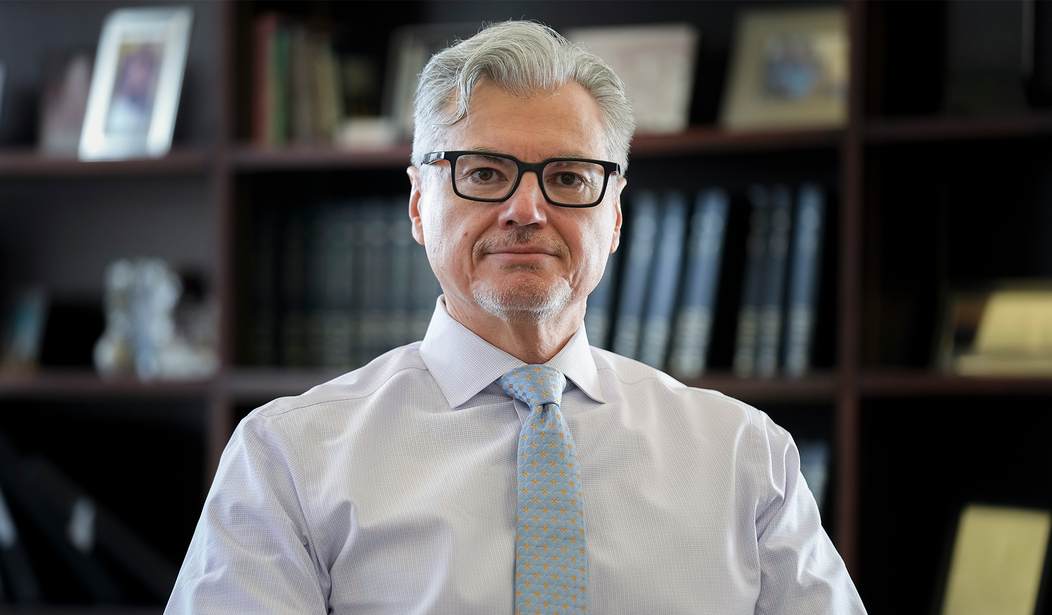Has lawfare come to an end in New York as well as Washington DC? It certainly appears that Alvin Bragg and Judge Juan Merchan have begun to seriously reconsider it.
Over the weekend, Bragg's office sent a request to postpone a key ruling today after Donald Trump's defense team notified them of several potential challenges to Bragg's 34 felony convictions. Trump's legal team then told Merchan that they concurred with the need for more time to assess the impact of the election and the previous Supreme Court ruling on immunity, the issue on which Merchan was supposed to rule today.
In response, Merchan kicked the can down the road another week:
NEW - Judge Merchan has agreed to delay any decision on President-elect Trump’s criminal hush money case.
— Katherine Faulders (@KFaulders) November 12, 2024
The DA’s office signaled it needed more time to consider how to proceed now Trump is president-elect. Reporting w/ @AaronKatersky @PCCharalambous pic.twitter.com/lXsGl4Pugl
New York Judge Juan M. Merchan had been set to rule Tuesday on their earlier request to throw out his conviction because of a U.S. Supreme Court ruling this summer on presidential immunity. Instead, he told Trump’s lawyers Tuesday he’d delay the ruling until Nov. 19.
According to emails filed in court, Trump lawyer Emil Bove asked for the delay over the weekend, arguing that putting the case on hold — and then ending it altogether — is “necessary to avoid unconstitutional impediments to President Trump’s ability to govern.”
Prosecutors agreed to the delay.
Technically, prosecutors requested the delay, as the above e-mail chain shows. Bove contacted Bragg's office to discuss a delay, but Matthew Colangelo got the ball rolling on Sunday morning. In his e-mail, Colangelo notes that the defense had advised their team that a failure by prosecutors to request a stay on the immunity ruling would prompt the defense to move that all proceedings in the case be stayed.
That doesn't mean Bove and Colangelo are entirely on the same page. In his concurring message, Bove highlights the reported decision by the Department of Justice and Special Counsel to vacate their indictments of Trump over their "unconstitutional impediments to President Trump's ability to govern." Bove implies that these considerations eclipse the immunity argument and have to be addressed directly, which is why they seek the delay.
Colangelo doesn't concede those points, but he does at least imply that they are now bigger issues than the application of the Supreme Court's ruling in Trump v US. Colangelo notes that the court has to weigh the "competing interests of (1) a jury verdict of guilt following trial that has the presumption of regularity; and (2) the Office of the President." Under normal circumstances that might be the case, but the immunity argument directly attacks (1) in this case. Bragg's office used official acts as part of their argument for a felony conviction, which the Trump v US ruling would appear to exclude, and therefore the conviction itself would be invalid.
Bove wants to attack along all lines of argument on November 19; Colangelo sounds as though he's offering sotto voce a face-saving exit with the constitutional-impediment argument. At any rate, he's not willing to roll the dice on what Merchan might have otherwise ruled today.
What about that, anyway? If Merchan was willing to toss the case on the immunity claim, why not just hold the hearing today anyway? Well, since both sides asked him to kick the can down the road, it's easier to cooperate than to force the issue. If he reads between Colangelo's lines, he can also save some face by adopting Bove's construct of the constitutional impediment rather than admit that the entire trial was a farce. Even better for Merchan, Bragg's office could choose to concede on that point and agree to a dismissal on the constitutional argument, letting Merchan entirely off the hook. That potential is worth waiting a week for Merchan.
We have to wait another week for a resolution, but the direction seems pretty clear. The electorate just acquitted Donald Trump and convicted the party of unrestricted lawfare, and now the latter wants to avoid even harsher sentencing down the road.








Join the conversation as a VIP Member